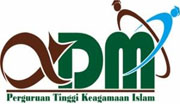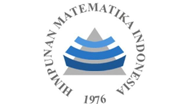Polygon Area Board Game for Building Thinking Skills in Area Conservation and Measurement
Abstract
Keywords
Full Text:
PDFReferences
D. R. Anggraeni, H. Elmunsyah, and A. N. Handayani, "Pengembangan Modul Pembelajaran Fuzzy pada Mata Kuliah Sistem Cerdas untuk Mahasiswa S1 Pendidikan Teknik Elektro Universitas Negeri Malang," TEKNO Jurnal Teknologi, Elektro, dan Kejuruan, vol. 29, no. 1, pp. 26-40, 2019.
A. Arsyad, Media Pembelajaran. Depok: PT Raja Grafindo Persada, 2017. [3] A. Baist, M. A. Firmansyah, and A. S. Pamungkas, "Desain Bahan Ajar Komputasi Matematika Berbantuan Software Mathematica untuk Mengembangkan Kemandirian Belajar Mahasiswa," FIBONACCI: Jurnal Pendidikan Matematika dan Matematika, vol. 5, no. 1, pp. 29-36, 2019.
Y. Fan, L. Yang, and X. Liu, "Board Games for Collaboration in Science Learning: A Systematic Review of the Literature," Education Sciences, vol. 15, no. 2, p. 188, 2025, doi: 10.3390/educsci15020188
S. F. Giwangsa, "Pengembangan Media Kartu Kuartet pada Pembelajaran IPS Sekolah Dasar," Pedagogi: Jurnal Penelitian Pendidikan, vol. 8, no. 1, 2021.
A. Giwangsa, Media Pembelajaran Matematika. Jakarta: Rajawali Pers, 2021.
A. Gómez-Alvarado, L. Villalonga-Pérez, and J. A. García, "The Effectiveness of Game-Based Learning in Mathematics: A Meta-analysis," Thinking Skills and Creativity, vol. 54, 2024. [Online]. Available: https://www.sciencedirect.com/science/article/abs/pii/S2530380524000194
E. Kosasih, Pengembangan Bahan Ajar. Jakarta: PT Bumi Aksara, 2021.
R. Kurniawan, A. G. Razaq, and E. Poerbaningtyas, "Perancangan Board Game Sebagai Media Penunjang untuk Meningkatkan Minat Kegiatan Ekstrakurikuler Pramuka Penggalang Siswa Sekolah Dasar," Jurnal Desain, vol. 8, no. 2, pp. 132-146, 2021.
N. Kurniawati,'A. Laili, I. Setyawati, and N. Dewi, "Teori Perkembangan Kognitif Jean Piaget Tahap Operasional Konkret Pada Anak Usia 6-11 Tahun Terhadap Hukum Kekekalan Luas," in PRISMA, Prosiding Seminar Nasional Matematika, vol. 6, pp. 440-444, 2023. [Online]. Available: https://journal.unnes.ac.id/sju/prisma/article/view/66886
A. Kusumawati, F. Pitaningtyas, T. Indrawan, and N. A. (Nino Adhi), "Penerapan Teori Perkembangan Mental Anak Usia 8-9 Tahun oleh Piaget Pada Hukum Kekekalan Luas," in PRISMA, Prosiding Seminar Nasional Matematika, vol. 6, pp. 156-161, 2023. [Online]. Available: https://journal.unnes.ac.id/sju/prisma/article/view/66579
C. S. Li and K. Chou, "Let's Get On-Board: A Practical Framework for Educational Board Game Design," Frontiers in Education, vol. 9, 2024. [Online]. Available: https://www.frontiersin.org/journals/education/articles/10.3389/feduc.2024.1420515
E. Maryanti, A. S. Egok, and R. Febriandi, "Pengembangan Media Board Games Berbasis Permainan Tradisional Egrang Batok untuk Siswa Sekolah Dasar," Jurnal Basicedu, vol. 5, no. 5, pp. 4212-4226, 2021.
E. Maryanti, A. Egok, and R. Febriandi, "The Development of Board Game Learning Media in Mathematics," Jurnal Pendidikan Matematika, vol. 15, no. 1, pp. 12-23, 2021.
C. Martínez-Sanz and M. C. López-Pernas, "Board Games for Learning: A Systematic Review on the Effects of Game Mechanics on Engagement and Collaboration," Journal of Educational Computing Research, vol. 62, no. 1, pp. 3-29, 2024, doi: 10.1177/07356331231219408.
A. Mufida and M. R. I. Abidin, "Perancangan Board Game sebagai Media Pembelajaran Bahasa Inggris Anak Usia 6-10 Tahun," BARIK - Jurnal S1 Desain Komunikasi Visual, vol. 2, no. 3, pp. 44-59, 2021.
A. Nafisah, S. Sakdiyah, L. Araspa, and N. A. (Nino Adhi), "Implementasi Teori Perkembangan Mental Piaget dalam Hukum Kekekalan Luas," in PRISMA, Prosiding Seminar Nasional Matematika, vol. 6, pp. 132-136, 2023. [Online]. Available: https://journal.unnes.ac.id/sju/prisma/article/view/66702
D. H. Nugroho, "Pengembangan Media Pembelajaran Board Game Matematika Kelas VIII Semester 1 Kurikulum 2013 di SMP Negeri 48 Jakarta," TEACHER: Jurnal Inovasi Karya Ilmiah Guru, vol. 1, no. 2, pp. 150-162, 2021.
S. Nurfadhillah, R. Marcelino, C. Hasanah, F. Hukmah, and N. A. Lestari, "Pengembangan Bahan Ajar Berbasis Audio Visual terhadap Hasil Belajar Siswa pada Materi Penjumlahan dan Pengurangan Pecahan Berpenyebut Sama Pada Kelas 3 SDIT Asdu," PENSA, vol. 3, no. 2, pp. 200-212, 2021.
I. M. Sadjati, Hakikat Bahan Ajar. Jakarta: Universitas Terbuka, 2017.
J. Schaper, "Designing Educational Board Games: Best Practices for Instructional Game Development," Educational Technology Research and Development, vol. 73, pp. 1-19, 2025. [Online]. Available: https://link.springer.com/article/10.1007/s44217-025-00472-z
A. I. Sugandi, L. Linda, and M. Bernard, "Pengembangan Bahan Ajar Berbantuan Media Tubomatika Untuk Meningkatkan Kemampuan Abstraksi Matematis Siswa," AKSIOMA: Jurnal Program Studi Pendidikan Matematika, vol. 9, no. 3, pp. 809-821, 2020.
Sugiyono, Metode Penelitian Kuantitatif, Kualitatif, dan Tindakan. Bandung: Alfabeta, 2013.
M. Vita-Barrull, R. Amado, J. Blat, and D. Fonseca, "Design and validation of a board game for higher education learning," Education and Information Technologies, vol. 29, pp. 1605-1625, 2024, doi: 10.1007/s10639-023-12214-5.
A. Qian and J. Clark, "Game-Based Learning in Mathematics: A Systematic Review," Education Sciences, vol. 13, no. 2, pp. 1-19, 2023. [Online]. Available: https://pmc.ncbi.nlm.nih.gov/articles/PMC10086333/
A. T. Papachristou and K. Pnevmatikos, "Non-Digital Games in Mathematics Education: A Quasi-Experimental Study," Frontiers in Education, vol. 9, 2024. [Online]. Available: https://www.frontiersin.org/journals/education/articles/10.3389/feduc.2024.1331312
L. Zosh et al., "The Role of Playful Learning in Promoting Executive Function and Academic Skills," Computers & Education, vol. 210, 2024. [Online]. Available: https://www.sciencedirect.com/science/article/pii/S0959475224000732
DOI: http://dx.doi.org/10.30829/zero.v9i2.26017
Refbacks
- There are currently no refbacks.

This work is licensed under a Creative Commons Attribution-ShareAlike 4.0 International License.
Publisher : Department of Mathematics Faculty of Science and Technology Universitas Islam Negeri Sumatera Utara Medan | ||||
| ||||
 |  |  |  |  |



